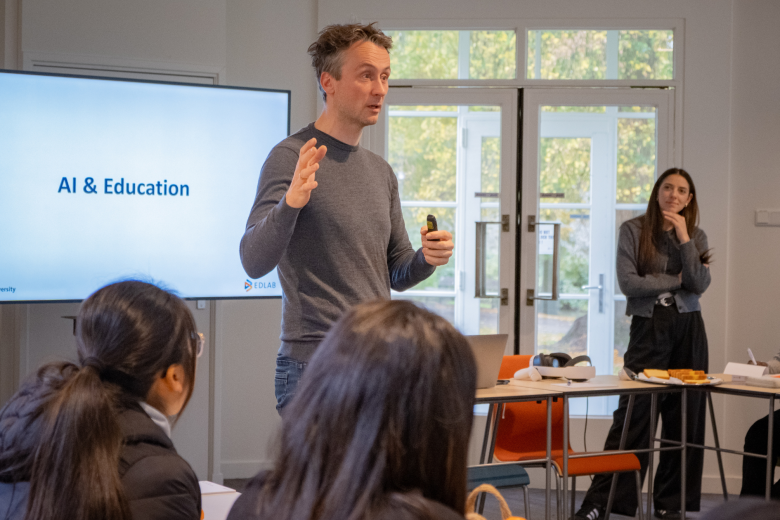AI and the people: co-creating for the future of work
AI and automation will have an important impact on work and the workplace. As a result, society will need to grapple with significant workforce transitions and dislocation. In this article, we meet the research group that is combining expertise from business, policy and academia to help society face both the opportunities as well as the challenges that come with technological change.
Technology-driven change: balancing opportunity and risk
The Covid-19 pandemic has greatly accelerated digitalisation, intensifying considerations of how society should deal with the rapid increase of technology-driven change. Technological progress undoubtedly creates opportunity, but it also generates uncertainty: as the development of new products, machines and applications progresses ever faster, there is also growing concern about the possible negative impact of this progress on both individuals and society as a whole.
Artificial Intelligence (AI) is a prime example of this. The implementation of AI — the comprehensive automation of intelligent behavior and the further development of machine learning — is already fundamentally changing our world today. We communicate with chatbots, algorithms control the movement of goods, and medical research uses data in order to develop new approaches for the treatment of diseases. Yet, the use of AI also raises concerns about job loss, heteronomy and discrimination.

Business, policy and academia unite to understand the impact of technological change
How will AI change our everyday working life? How can it be meaningfully integrated into company processes, and what will happen to employees as a result? In order to reduce worries and enhance potential benefits, it is essential to understand how technological change can be transformed into social progress.
IBM DACH (Germany, Austria and Switzerland) and the German United Services Union, ver.di (Vereinte Dienstleistungsgewerkschaft) are well aware of this pressing need to understand the impact of technological change. For this reason, they developed an approach to collaborate on this topic. To ensure the project represented different perspectives, the two partners brought on board Dr. Marie-Christine Fregin from SBE’s Research Centre for Education and the Labour Market (ROA) as a scientific research partner. At the time, Dr. Fregin was also working as an academic consultant in Germany.
Once Dr. Fregin joined the project, her colleagues Prof. Dr. Andries de Grip (director of ROA) and Prof. Dr. Mark Levels (director of the research program Health, Skills, and Inequality at ROA) immediately saw its great potential. They joined forces with Fregin and together, the three successfully secured funding and began conducting the research.
While the project started small, it grew to include partners from the private sector as well as the German Ministry of Labour and Social Affairs (BMAS) with its Policy Lab Digital, Work & Society (Denkfabrik Digitale Arbeitsgesellschaft).
The great benefits of interdisciplinary co-creation
We recently met with Dr. Fregin, now a Research Leader at ROA, to hear her perspective on the project. She explained that the scientific research involved two case studies, which were originally suggested and facilitated by IBM as collaborations with two of their customers, Siemens AG and Deutsche Telekom Service GmbH. The scientific studies themselves were designed in collaboration between all partners involved. According to Dr. Fregin, ‘besides the core scientific elements/work, really everything has been co-created.’
'For me, the use of AI in companies means above all freedom. The machine can do time-consuming repetitive work for us, so employees can concentrate on more creative tasks. For employees, change can be an opportunity if they are aware of the consequences and can help shape them. The digital transformation is changing the interaction between social partners - all stakeholders must work together across their own system boundaries. Our research project with Maastricht University has shown how this can be done successfully.’
Norbert Janzen, former CHRO IBM DACH
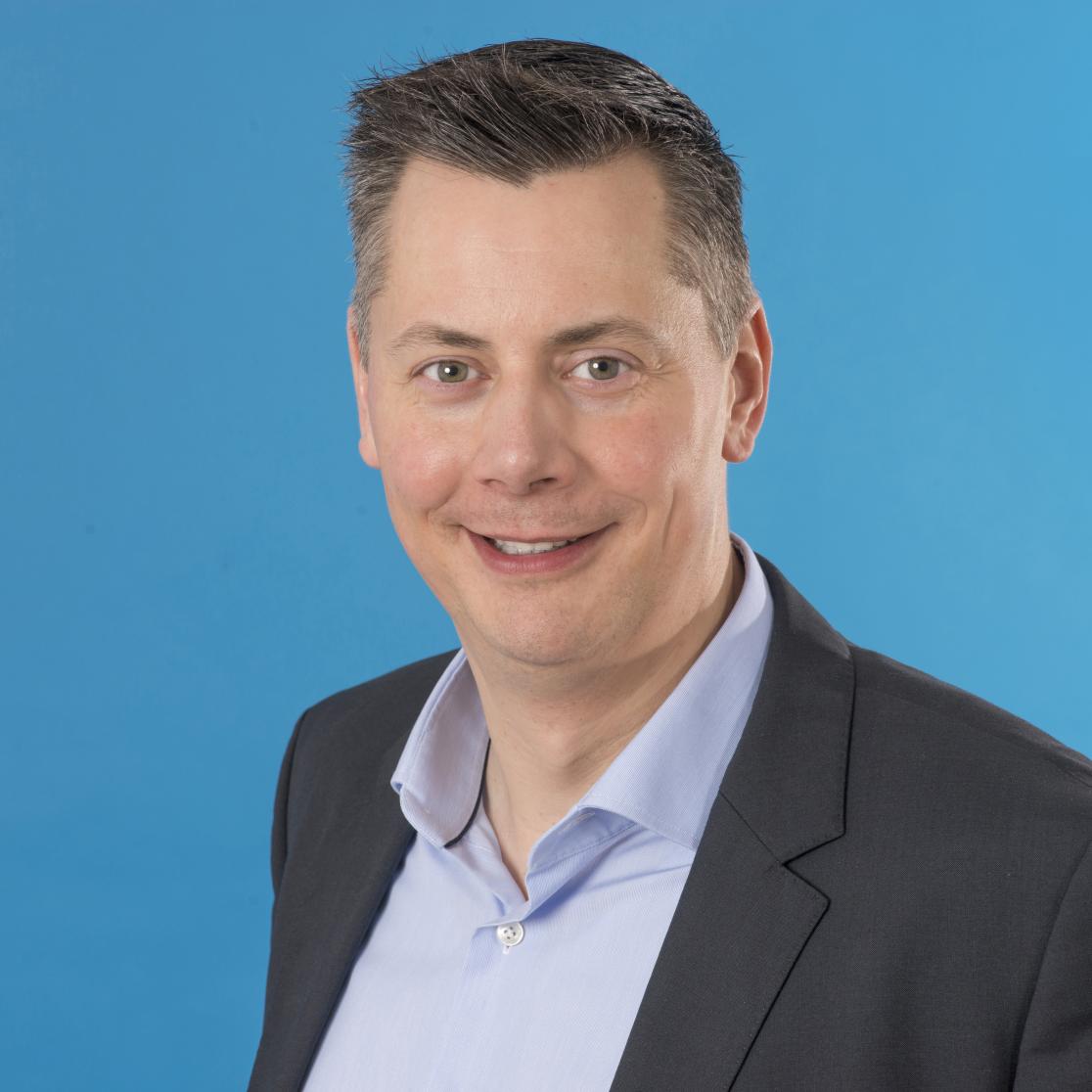
With regard to the project’s organic growth, Dr. Fregin emphasized, ‘we got much more insights than from ‘just’ the two case studies that were conducted in the scientific research. Many more activities and projects sprung up out of the initial research activities such as an AI dialogue forum that brought together policymakers, the business world, union representatives and scientists to discuss policy implications of AI at workplaces. The success of the project builds on the joint effort of a very diverse team.’
Going further, Dr. Fregin related that ‘everyone we brought on board was very excited about the project, and that is how it grew and grew. The project also received a lot of political attention and so it has been a very agile project.’ For instance, Dr. Fregin was invited as an expert to the Enquête Commission for Artificial Intelligence of the German Parliament.
Moreover, the project’s multidisciplinary design is a unique and beneficial aspect. All partners have gained new perspectives and thereby have established new ways of looking at the impact AI can have on workers and jobs.
‘The use of AI is currently still causing worries and fears among many workers. Self-controlling processes are leading to a new division of labour between humans and machines, which has not yet been sufficiently researched. As a trade union, we want to design jobs and processes in such a way that people have good work. To achieve this, we need to better understand the effects of AI deployment on workers and jobs. Research projects like the one with Maastricht University make an important contribution to this.’
Christoph Schmitz, Member of the Executive Board of the united service sector union ver.di
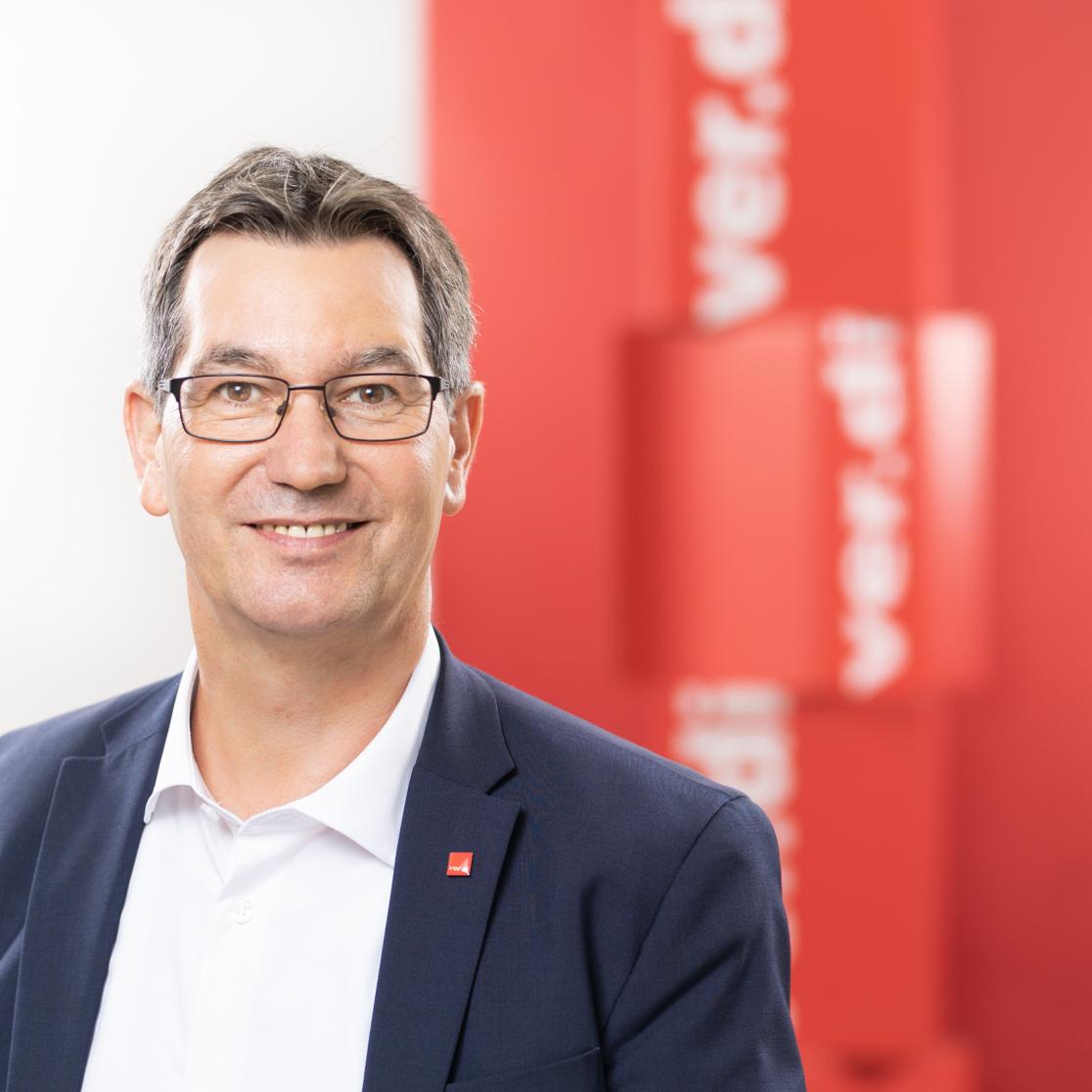
Knowledge is power: making the research available to the public
In order to make the research available to a broader public, the project culminated in the release of a brochure (see below to download) with 28 authors from the ministry (BMAS), from the union (ver.di), from business partners, and from science.
The brochure, which was officially published on 10 December 2020, ‘will enable all stakeholders of technological and societal change to learn and benefit from the [AI implementation research] insights.’ Dr. Fregin adds, ‘providing the people in charge of AI implementation with knowledge about the impact of these technologies is very important for the entire economy.’
In 2019, 6% of German businesses were reported to have been implementing AI, while many more were already actively considering and planning for AI implementation. The co-creative research project has been in alignment with the BMAS think tank’s forward-thinking mindset and approach for policymaking. This approach involves proactively establishing socio-political frameworks for the use of AI that is human-centered in order to support emergent changes.
What next?
Dr. Fregin explains that while the scientific studies have provided ‘the beginnings of a common basis of information that allow people to collaborate on AI implementation, we need to study this topic further, over a longer period of time.’ The effects of AI will continue to evolve, and when various technological innovations are combined, the resulting influences become only more complex.
The research team is currently working on two publications, in collaboration with co-authors Dr. Raymond Montizaan and Assistant Prof. Dr. Julia Kensbock. In addition, they are already planning future research, which will integrate all the lessons learned from the first project, not only in terms of the science but also in terms of establishing context through communication and co-creation with partners.
‘We study the impact of AI and smart technologies on work and labour markets from different angles. Engaging in large field experiments with external stakeholders like companies, unions and policy makers are at the heart of ROA´s mission to create impactful research. The IBM and ver.di AI research project is just a start – this type of transdisciplinary research and co-creation is an example of how future-oriented spearhead project should look like.’
Mark Levels, Professor for health, education and skills at ROA
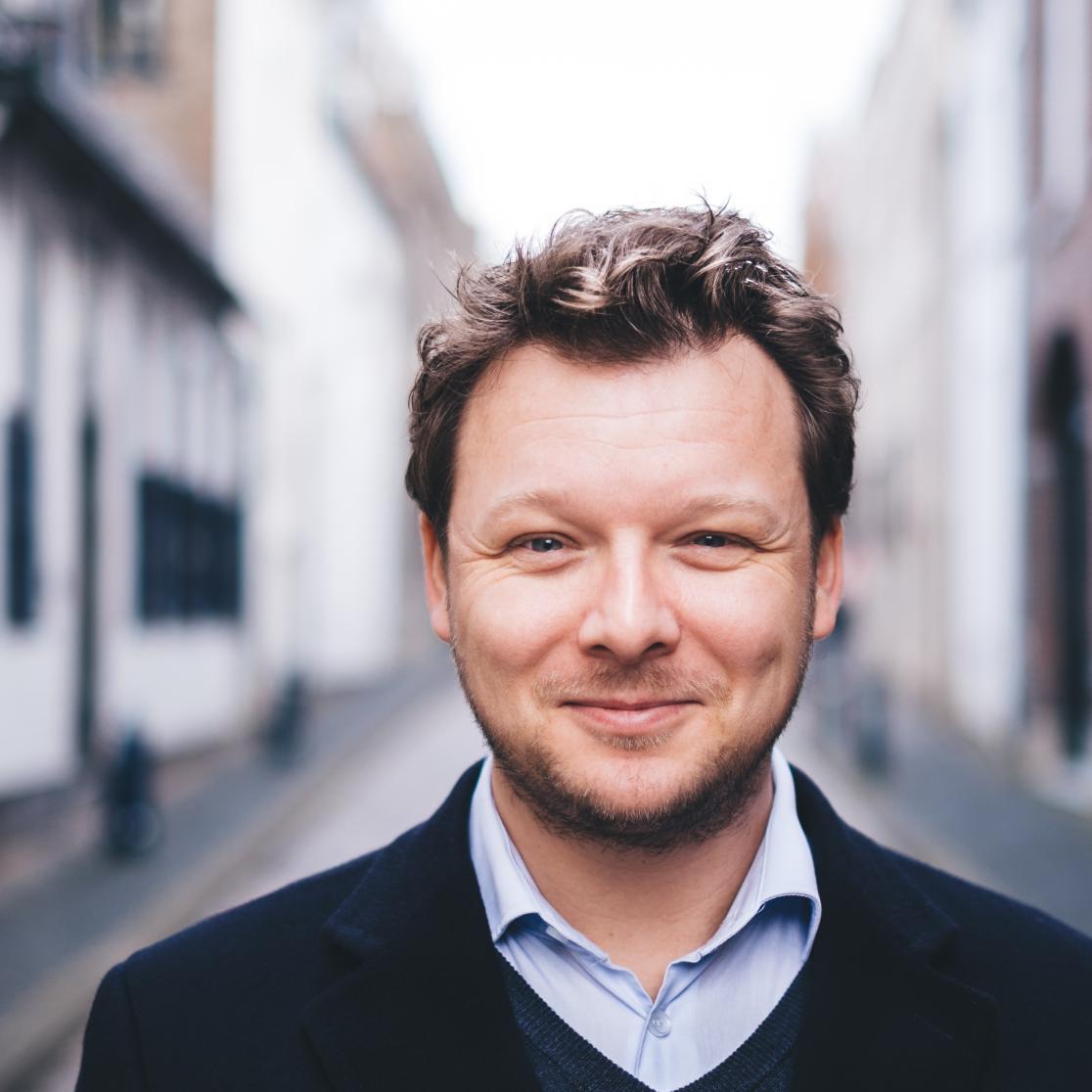
In conclusion, Dr. Fregin unveiled that ‘this project has provided us with the scientific knowledge that we need to study AI applications in the corporate context, and it also empowered us with more knowledge of how to bridge the worlds of science and practice. This is aligned with SBE's dual mission, which is to not only to conduct cutting edge science but also to have a societal and policy impact.’ Fregin sees conducting such a co-creative project as an opportunity to engage in ‘science as a service to society,’ and she noted, ‘that is precisely what I love about this job and about projects like this.’
Also read
-
Teacher Information Points at UM
UM faculties now host Teacher Information Points (TIPs) that offer local, “just-in-time” and on-demand support for teaching staff. The aim is simple: to provide help that is closely connected to day-to-day teaching practice.

-
Shaping the future of marketing: SBE scholars at the forefront of research and teaching
Three faculty members from SBE’s Department of Marketing & Supply Chain Management, Prof. Dr. Dominik Mahr, Dr. Jonas Heller, and Dr. Tim Hilken, combine cutting-edge research with innovative teaching and mentorship. From exploring the societal implications of digitalisation in courses such as...
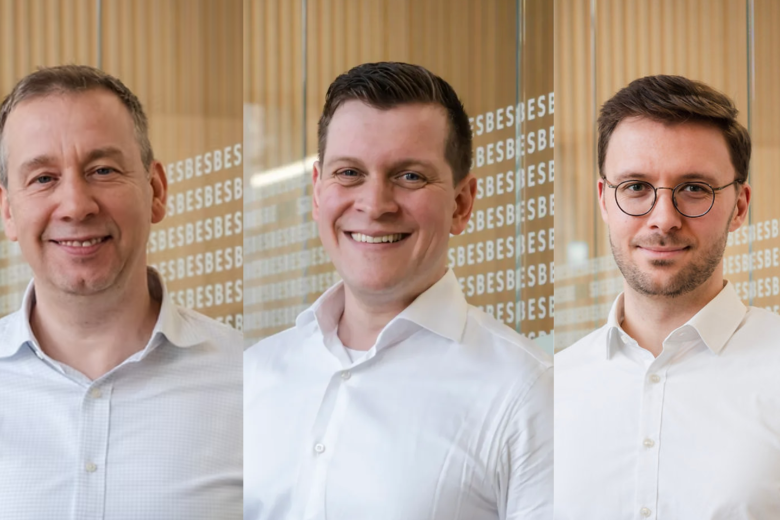
-
UWC Maastricht students get a taste of education innovation at EDLAB
On 21 October 2025, EDLAB hosted students from United World College Maastricht for the second year in a row, as part of their Youth Social Entrepreneurship programme.
